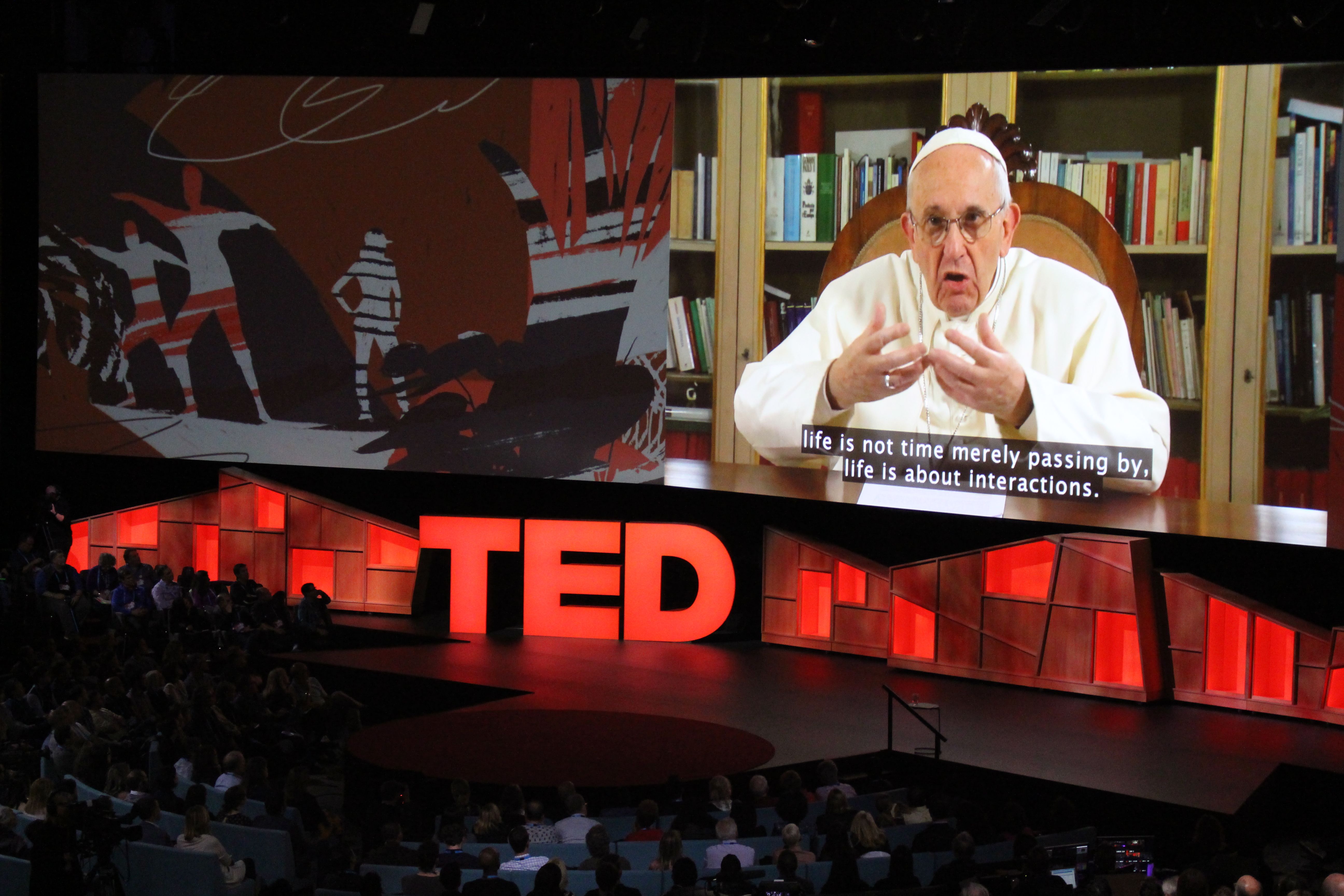Pope Francis' TED talk was ridiculous. It was also great.
He doesn't just preach to the converted. That's wonderful.


A free daily email with the biggest news stories of the day – and the best features from TheWeek.com
You are now subscribed
Your newsletter sign-up was successful
Pope Francis spoke at TED.
This sounds like a joke tweet generated by a bot, or the setup to a mediocre stand-up comedy routine, but it's actually real news. It happened. (The pope didn't actually visit the hip tech-slash-pop science-slash-do goodery conference, but he did send a video message from the Vatican.)
The pope's message was, in a sense, perfect TED, since it was full of nice-sounding generalities. No person is an island, the supreme pontiff of the church that produced Aquinas and Augustine of Hippo intoned. "Life is not time merely passing by, life is about interactions," he pontificated. He subtly criticized the ethos of capitalism and of techno-utopianism, albeit in non-threatening ways. "People's paths are riddled with suffering, as everything is centered around money, and things, instead of people", explained the successor of the Apostle Peter who, according to Jesus Christ, the son of God, holds in his hands the keys to heaven.
The Week
Escape your echo chamber. Get the facts behind the news, plus analysis from multiple perspectives.

Sign up for The Week's Free Newsletters
From our morning news briefing to a weekly Good News Newsletter, get the best of The Week delivered directly to your inbox.
From our morning news briefing to a weekly Good News Newsletter, get the best of The Week delivered directly to your inbox.
The pope then mentioned one of his favorite recent themes: tenderness. The pope asked TED attendees, as he asks audiences around the world, to be more tender towards each other.
What is one to make of this? On the one hand, it looks as much like SNL's idea of a Pope Francis TED talk as a talk by the actual pope. What's more, as devout Catholics won't fail to point out: Er, where's Jesus? Where's the faith? Does the pope really have to boil down the complexity and grandeur and profundity of the Catholic faith to self-help banalities?
And yet ... the pope's TED talk represents one of the great hopes and bets of his papacies: the fact that the pope is finally heard by people who wouldn't listen to him before. In the New Testament, the apostle Paul went up to Mars Hill in Greece to talk to Greeks about the Gospel, and he spoke about it to them in terms of their own religion, not in terms of the Torah as he did when speaking with Jewish audiences. Great Christian missionaries have always taken this as an example to see that they have to adapt their message to their audiences. This is obviously a precarious balance: Adapting doesn't mean emptying out or denying or changing that message. But the overall lesson of church history is that this adaptation is necessary to the missionary work that Christians are called to.
The promise of the Francis papacy has been that by adapting the Christian message to a post-Christian, secular audience, people who had written off Christianity can be brought back into the fold. This is a bet whose outcome won't be known for years, perhaps decades, but it's certainly a bet worth making. Pope Francis wouldn't have been invited to speak to TED, and the people at TED wouldn't have listened, if he only spoke about, say, kneeling before the Cross of Christ whose blood was poured out for our sins.
A free daily email with the biggest news stories of the day – and the best features from TheWeek.com
And by the way, when Pope Francis calls for a revolution of tenderness, you can roll your eyes if you like, but he's right: Tenderness is extremely important, and it really is the case that if we were all just a little bit more tender, it would be a revolution.
The Francis papacy is about speaking about Christianity in a new way to new audiences who wouldn't listen to its message before. This is an extremely laudable goal. The ways he does it can sometimes be criticized, but certainly not the overall strategy. I'm glad he did a TED talk. And I hope he keeps doing mildly ridiculous outreach just like this.
Pascal-Emmanuel Gobry is a writer and fellow at the Ethics and Public Policy Center. His writing has appeared at Forbes, The Atlantic, First Things, Commentary Magazine, The Daily Beast, The Federalist, Quartz, and other places. He lives in Paris with his beloved wife and daughter.
